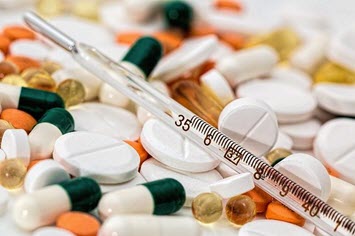COVID -19 HAS LED TO RECORD OVERDOSES
Record Overdoses

 The effects of COVID – 19 will be felt for years to come. It’s as if a large rock fell from a great height into an ocean of water, and we are watching the expanding ripples without a sense of when or where they will end. For the purposes of this post, it’s not the obvious consequences of getting sick from the coronavirus, but the secondary and tertiary effects on our population we are just starting to understand. At My Friends House Recovery Centers, we help people with substance misuse and mental health issues. In our world, our microcosm of Camden and Gloucester counties, those ripples from COVID – 19 have been devastating.
The effects of COVID – 19 will be felt for years to come. It’s as if a large rock fell from a great height into an ocean of water, and we are watching the expanding ripples without a sense of when or where they will end. For the purposes of this post, it’s not the obvious consequences of getting sick from the coronavirus, but the secondary and tertiary effects on our population we are just starting to understand. At My Friends House Recovery Centers, we help people with substance misuse and mental health issues. In our world, our microcosm of Camden and Gloucester counties, those ripples from COVID – 19 have been devastating.
It’s a form of Russian Roulette.
The isolation, loss of employment, constant stress, and fear of getting sick have taken a toll, and the drug environment in the State of New Jersey has changed radically for the worse per the most recent Drug Monitoring Initiative report. The intent of this information is to perpetuate an awareness of the substances circulating to hopefully prevent misuse, abuse, and to mitigate community and individual harm.
One of the scariest trends in the past year is the increasing amount of Fentanyl found in heroin and other drugs, including marijuana, in the State of New Jersey. Fentanyl is a synthetic opioid that is 80-100 times stronger than morphine. It was originally developed for pain management treatment of cancer patients. Fentanyl is cheaper than heroin and more potent, so when it is mixed with heroin and other drugs, manufacturers can get more profit from a batch.
In the second quarter of this year (April, May, and June 2021), 97% of suspected heroin submissions to forensic labs contained Fentanyl or Fentanyl class compounds. In contrast, at the beginning of the pandemic, 89% of heroin submissions contained Fentanyl, and if one goes back to 2015, only 2% of heroin submissions contained Fentanyl.
Fentanyl binds to the opioid receptors in the brain that regulate how one experiences pain and emotions. When Fentanyl binds to these receptors, it floods the brain’s reward centers with dopamine. While dopamine occurs naturally, the supercharged Fentanyl creates a sense of euphoria and extreme relaxation. It also results in drowsiness, sedation, respiratory depression, respiratory arrest, coma, and death.
The human brain is wired to want pleasure. Fentanyl misuse and abuse rewires the brain so that one continues to seek out the drug. Repeated use results in a tolerance requiring higher doses to achieve the same euphoria. Consequently, the brain no longer naturally produces as much dopamine which is why people who misuse Fentanyl and other drugs feel depressed. Your brain literally stops working the way it did before the introduction of Fentanyl.
The mixture of any drug with Fentanyl greatly amplifies the potency, and one using the combination has no clue as to what the ratios are. It can differ from batch to batch. It’s a form of Russian Roulette. Illegal street drugs don’t come with an FDA required list of ingredients.
In 2020, the first year of the pandemic, more than 93,000 people, a record and a 30% increase from the year before, died of a drug overdose with Fentanyl as the leading cause. In 2020, 288 individuals died in Camden County and 127 in neighboring Gloucester County. It’s just not the person you see on the street, it’s also teenagers smoking marijuana unknowingly sprayed with Fentanyl.
Simply put, one cannot possibly know what is in anything these days. Every substance misuse brings risk of death. At My Friends House Recovery Centers, we provide programs and counseling to help individuals find their way back to a substance free life. We like to say we save lives one visit at a time – because we do. It’s that simple.






